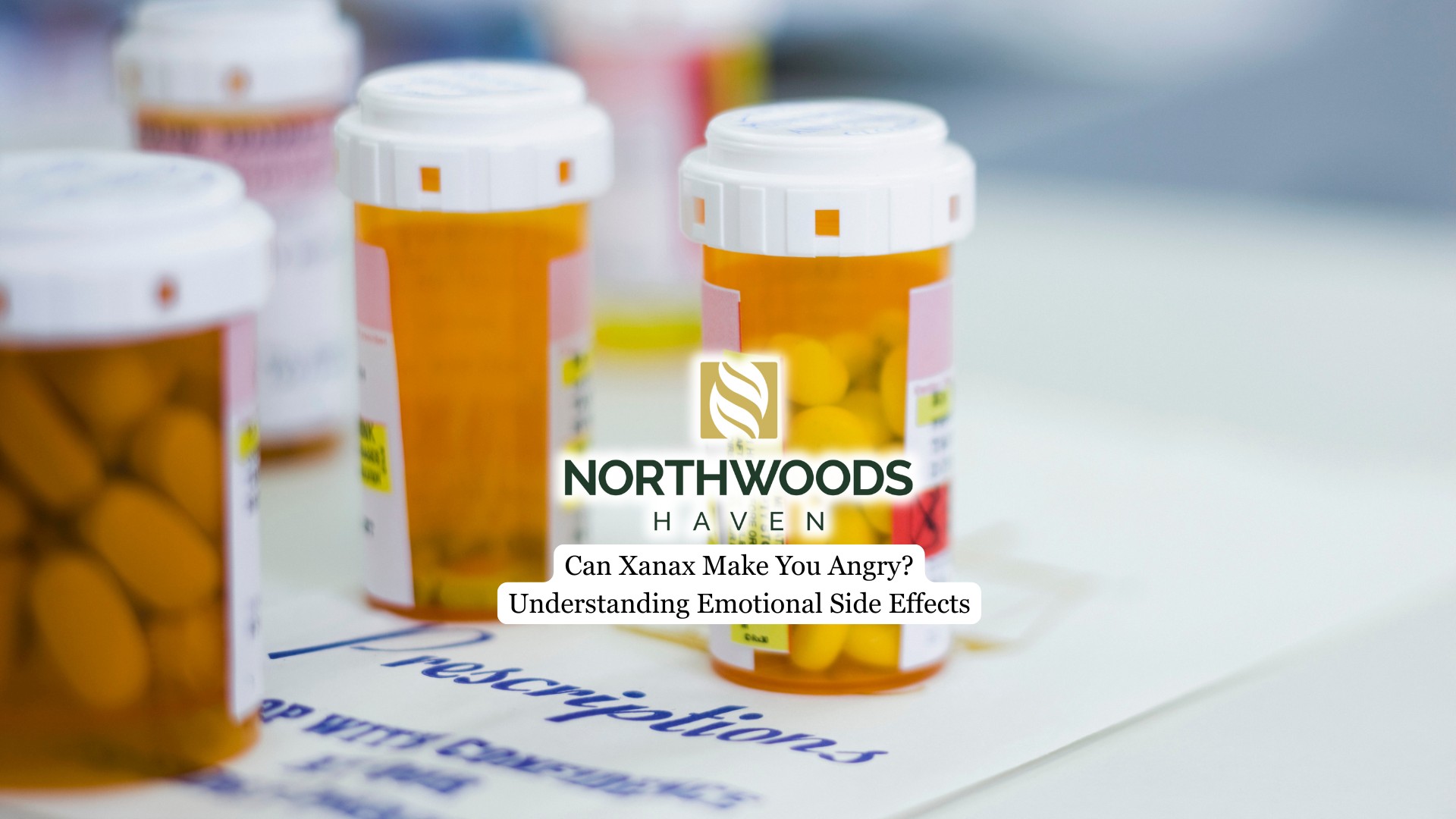Ativan, known generically as lorazepam, is a widely prescribed medication for anxiety, insomnia, and other conditions. You might be surprised to learn that this prescription drug is classified as a controlled substance.
To fully understand why it got such a classification, you must delve into the specifics of controlled substance classifications, its properties, and the regulatory framework surrounding its prescription and use.
Understanding Controlled Substances
In the United States, the Drug Enforcement Administration (DEA) regulates controlled substances or drugs and chemicals whose manufacture, possession, and use are regulated by the government due to their potential for abuse and addiction. These substances are categorized into schedules based on their accepted medical use, potential for abuse, and potential to create dependence.
The DEA’s scheduling system ranges from Schedule I to Schedule V, with Schedule I substances having the highest potential for abuse and no currently accepted medical use and Schedule V substances having the lowest potential for abuse and widely accepted medical applications.
The Controlled Substances Act (CSA) of 1970 ensures that legitimate medical use is balanced with preventing misuse. Each schedule has specific legal requirements regarding prescribing, dispensing, and refilling with Schedule IV drugs like Ativan.
Classification as a Controlled Substance
Ativan is a benzodiazepine medication that’s classified as a Schedule IV controlled substance by the DEA. It is accepted for medical use but carries a moderate risk of psychological or physical dependence. In other words, Ativan can be addictive.
This classification is primarily due to its belonging to the class of drugs known as benzodiazepines. Benzodiazepines, as a group, have a recognized potential for abuse, physical dependence, and psychological dependence, albeit generally lower than Schedule II or III substances.
As a result, the Controlled Substances Act regulates Ativan’s prescription, limiting refills to prevent misuse. Ativan’s classification stems from its potential to cause tolerance and dependency when used beyond recommended dosages, especially with long-term use often leading to prescription drug abuse.
The legal consequences for illegally distributing or misusing this controlled substance underscore the importance of following prescribed guidelines and using Ativan responsibly.
If you are prescribed lorazepam, it’s crucial to adhere to your doctor’s instructions and be aware of the risks associated with this medication. But suppose you or your loved one have become dependent on Ativan. In that case, you can check the Ativan addiction program at Northwoods Haven Recovery, offering intensive outpatient treatment to those struggling with prescription pill abuse.
Why Is Ativan Controlled?
Aside from the DEA, the US Food and Drug Administration (FDA) has issued boxed warnings, highlighting the dangers of combining Ativan with opioids and the potential for withdrawal symptoms if stopped abruptly.
Several factors contributed to Ativan’s Schedule IV designation. One is its mechanism of action. The prescription medication enhances the effects of a neurotransmitter called gamma-aminobutyric acid (GABA) in the brain. GABA is an inhibitory neurotransmitter, meaning it reduces neuronal activity.
By boosting GABA’s effects, Ativan slows down the central nervous system, producing a calming and relaxing effect. This effect is what makes it effective for treating anxiety and insomnia. However, this same mechanism also contributes to its potential for abuse and dependence.
Another is the potential of being misused for its sedative and euphoric effects. Individuals may take Ativan in larger doses than prescribed or more frequently than directed to achieve a stronger feeling of relaxation or to self-medicate for anxiety or stress. This misuse can quickly lead to tolerance, where the body requires higher doses to achieve the same effect, and, ultimately, to dependence.
Moreover, prolonged use of Ativan can lead to both physical and psychological dependence. Physical dependence occurs when the body adapts to the presence of the drug and experiences withdrawal symptoms if the drug is abruptly discontinued.

Withdrawal symptoms range from mild anxiety and insomnia to more severe symptoms like seizures, hallucinations, and delirium tremens. Psychological dependence is characterized by a craving for the drug and a belief that one cannot function properly without it.
As a mitigating measure, prescriptions for Ativan are limited by law, typically allowing no more than five refills within six months.
Following prescribed guidelines and communicating with your healthcare provider is crucial to prevent misuse and dependence.
Implications of Ativan’s Controlled Status
Ativan requires a valid prescription from a licensed healthcare provider. This ensures that a doctor has evaluated the patient’s condition and determined that Ativan is an appropriate treatment option. It also allows the doctor to monitor the patient for potential side effects and signs of misuse. Prescriptions also have refill limitations and expiration dates.
Likewise, Pharmacies must maintain detailed records of all Ativan prescriptions dispensed, including the patient’s name, the prescription date, the quantity dispensed, and the prescribing doctor’s information. These records are subject to inspection by regulatory agencies.
There are also restrictions on refills. Schedule IV substances have limits on the number of refills allowed on a prescription. It prevents patients from using the drug for longer than necessary and reduces the risk of dependence. Generally, prescriptions for Schedule IV medications expire after a certain period, typically six months, requiring a new evaluation by a physician.
In addition, the illegal possession, use, or distribution of Ativan can result in significant legal penalties, including fines, imprisonment, and a criminal record. These penalties are intended to deter individuals from misusing the drug and contributing to its diversion into the illicit market.
Risks Associated with Ativan Use
You may develop tolerance, requiring higher doses to achieve the same effects, which increases the risk of addiction. Abruptly stopping Ativan can lead to withdrawal symptoms, such as anxiety, seizures, and insomnia, making it essential to taper off under medical supervision.
Combining Ativan with opioids or alcohol drastically elevates the risk of respiratory depression, overdose, and potentially fatal outcomes. Misusing Ativan by taking it in ways not prescribed can result in serious health consequences, including dependence and overdose.
It’s crucial to adhere to medical guidelines when using this controlled substance to minimize these risks and ensure your safety.
Safe Use and Alternatives
It is essential to follow your healthcare provider’s instructions closely and adhere to the prescribed dosage and duration. This approach minimizes the risk of developing tolerance or dependence.
Always prioritize safe use when taking Ativan, and consider exploring alternatives for sustainable anxiety management. Proper storage and handling are also crucial to prevent unauthorized access, especially if you have children or individuals at risk of misuse in your household.
Understand the potential side effects of the medication and report any concerns to your doctor, and never share your Ativan with anyone else, even if they have similar symptoms.
Do not stop taking Ativan abruptly, as this can cause withdrawal symptoms. Talk to your doctor about gradually reducing your dose to minimize the risk of withdrawal.
Final Thoughts From Northwoods Haven Recovery
At Northwoods Haven Recovery, we offer intensive outpatient treatment for prescription drug addiction. We understand that each individual’s path to recovery from prescription pill addiction is unique. Our experienced team performs detailed assessments to uncover the root causes of prescription pill addiction and any co-occurring mental health conditions, allowing us to design a specific treatment plan for you.



